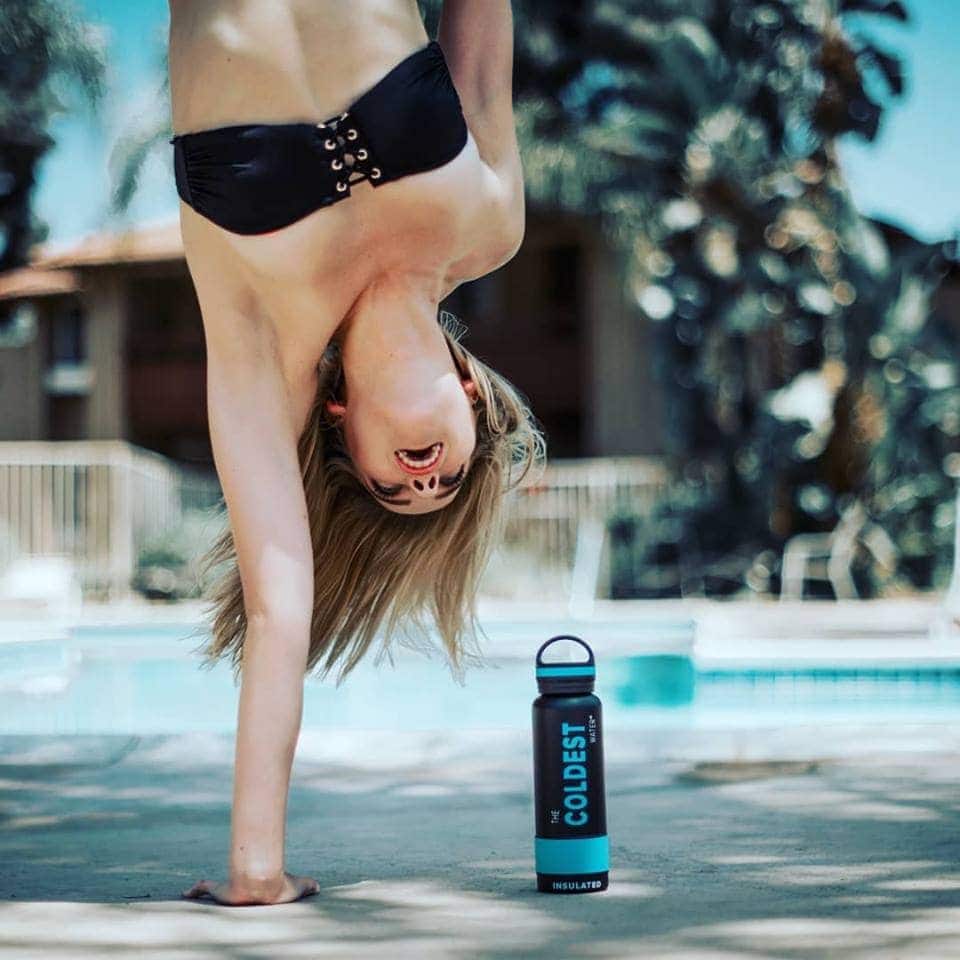Need of Water around Training and In Competition
Need of Water around Training and In Competition
We are always told to make sure to drink water during the physical exercise and stay well hydrated during the day … But why? In fact, drinking during the exercise can replace some of the fluids lost in sweat, prevent dehydration, and facilitate blood circulation that feeds the muscles oxygen and energy. It eliminates the waste produced to the effort, as well as to facilitate the absorption of carbohydrates and electrolytes like sodium, the main electrolyte lost to sweat during exertion!

Your Water Needs Vary Much By Several Factors:
-
What you ate before training: Did you eat a lot or a little? Was it heavy and more difficult to digest (protein or fat) or easily absorbed foods (carbohydrates)?
-
Duration and intensity of the effort: Do you plan to reach the finish line in record time by going beyond your limits or going there with moderate intensity and for fun
-
Temperature: Is it very hot and humid or cool and dry?
-
Your sweat level
Is your cap, shorts or sweater white (salt) and is your sweat salty after exercise?
What Quantity Should I Drink And At What Time?
In the day before training:
Listen to your thirst and bring a bottle of water with you to drink regularly. General rule: Try to drink a total of 500ml (from your coldest bottle) within 2 hours before a workout.
During training:
Aim for about 3-4 sips (150 to 300 ml) every 15-20 minutes, but mostly listen to your thirst! If you do not drink a lot during training, make sure to drink enough before and after exercise.
Read On: THE COLDEST BOTTLE – 32 OZ SPORTS

Depending on the Duration of Your Training:
-
The exertion of 30 minutes or less: Drinking before and after is enough.
-
An effort from 30 minutes to 1 hour: Drink enough water!
-
The effort of more than one hour:
Add 30 to 60g of carbohydrates (sugar) per hour through a sports drink (home or commercial) or high carbohydrate foods combined with water to maintain your energy level.
Since the stomach digests less quickly during an effort, a sports drink must, therefore, have a concentration of 6 to 8% of carbohydrates, or 6 to 8g of carbohydrates per 100 ml of liquid. If it’s hot and humid during your workout, reduce the number of carbohydrates in your drink and make sure it’s cool! The majority of commercial sports drinks already contain 6 to 8% carbohydrate and sodium, so if you make yourself a home drink do not forget to add a source of carbohydrates and your pinch of salt if you sweat a lot!
Read More: A Short Practical Guide for Better Hydration

SHOP NOW
Here is an Example of a Sports Drink Recipe That You Can Prepare At Home:
Natural sports drink with maple (for 1 liter):
- (3 ½ cups) 850 ml of cold water
- (¼ cup) 60 ml of orange juice
- ¼ cup (60 ml) maple syrup
- 2 tablespoons lime juice
- One pinch salt
Post Workout:
Make sure you drink enough according to your thirst and your needs! One of the best ways to drink according to your needs is to trust the color of your urine! Eh yes! After the training, we aim for a lemonade yellow color, and then we try to return to a light yellow. If it’s a darker color, it’s an indicator that you should drink more.
Read More: Raise Your Water Bottle to Stay Hydrated

Symptoms of Dehydration:
How do you know if you are dehydrated? Watch for the following symptoms:
-
Sore legs, cramps.
-
Heart rate higher than normal.
-
Decreased ability to provide intense effort.
-
Increased body temperature.
-
A sensation of thirst and dry mouth.
Now that you have all these tips, remember that to find out what’s right for you, watch and listen to your body and your tastes! Some prefer the water, or water and food, and other sports drinks. The important thing is to choose what works for you and makes you feel good!

















